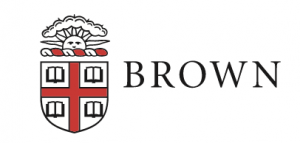Pembroke Center Postdoctoral Fellowships
"UNWRITING THE ANTHROPOCENE: A CALL TO EXPERIMENT"

Postdoctoral research fellows play a critical role in the Pembroke Center's intellectual community. In residence for one year, postdoctoral fellows undertake original research, teach undergraduate courses of their own design, participate in the Pembroke Seminar's rigorous interdisciplinary scholarly community; collaborate on research and programming, and develop professionally through faculty mentorship.
Applications for 2024-25 Pembroke Center Postdoctoral Research Fellowships are now being accepted. Please apply using Interfolio.
For the 2024-25 academic year, the Pembroke Center is awarding one-year residential postdoctoral research fellow positions to scholars from any field whose research relates to the theme of the seminar, "Unwriting the Anthropocene: A Call to Experiment."
In this yearlong seminar, we experiment with form to think about writing and poetics as a mode of embodied experience. We ask a series of questions that proliferate rather than resolve: What are the ways to trace the presences and absences of the colonial Anthropocene? Is it possible to experiment with form to move deeper into, and towards the other side of, catastrophe? What are the scales of intimacy, affinity and imaginary that engage not only disaster but also the pleasure of our environments? How do we write, visualize, engage with the disappeared and extinct, but also the processes of metamorphosis, metabolics, desire, and queer and trans ecologies that are entangled with anthropogenic crisis? How can we foreground perspectives and analyses grounded in gender/sex to unmake the Anthropocene?
Throughout the year, we study with the land, whales, black light, octopuses, trees, icebergs, boulders, subduction, tidelectics, and more. These figures, materialities, and earthly processes remake knowledge production and methodologies, changing perception and forms of writing to visualize planetary changes. With and beyond scientific discourse and disciplinarity, we attend to new/old forms from across the globe, such as the eclogue, Haiku, experimental video, speculative documentary, queer cinema, and climate fiction, as forms by which to inhabit the earth on both intimate and planetary scales. What can we learn from these forms to chronicle and unwrite the colonial Anthropocene now?
Fellows are required to participate weekly in the Pembroke Seminar, teach one undergraduate course, and pursue individual research.
Candidates are selected on the basis of their scholarly potential and the relevance of their work to the research theme. Recipients must have a PhD and may not hold a tenured position. Fellowships are awarded to postdoctoral scholars who have received their degrees from institutions other than Brown within the last five (5) years. Brown University is an EEO/AA employer. The Center strongly encourages underrepresented minority and international scholars to apply.
The term of appointment is July 1, 2024-June 30, 2025. Postdoctoral Research Fellows are eligible to participate in the Brown University health and dental benefit plan. Salary for the position is approximately $56,000.00 For full consideration, applications must be submitted by 11:59 pm (EST) on Monday, November 20, 2023. Selections will be announced in February.
Questions should be directed to Donna_Goodnow@brown.edu or phone 401-863-2643.
Complete applications must include:
- Curriculum vitae
- Cover letter
The letter should demonstrate how your research project relates to the Pembroke Seminar theme, and include a proposed course description. - Writing Sample
Please send a piece no longer than 7,000 words (equivalent to 28-double spaced pages with 1" margins and a 12 point font). If the sample is part of a larger work, situate it briefly in a cover page.
Selected finalists will be asked to submit additional materials including:
- One page document including title and 250-word abstract of proposed research project
- Project statement of five typed pages (double-spaced)
- Brief representative bibliography for research proposal
- Three confidential recommendation letters
- Course syllabus with a course description and schedule of assigned readings

